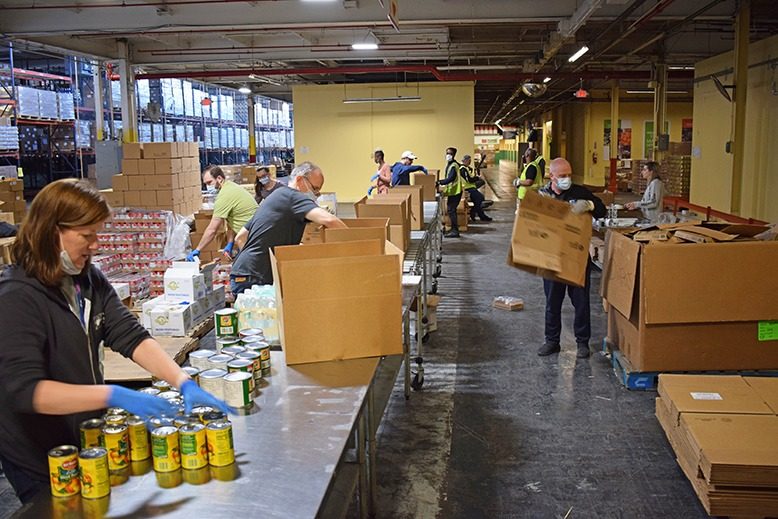
By the time the effects of the coronavirus pandemic reached the Garden State in March, causing a surge in layoffs and unemployment claims, the Community FoodBank of New Jersey (CFBNJ) was already working around the clock to ensure the state’s most vulnerable residents would not go hungry.
“The imagery that comes to mind are the long lines at the grocery store,” says CFBNJ president and CEO Carlos Rodriguez. “If you have the means, you wait. But if you don’t, or if you’re waiting for a social security check or WIC check, what do you do?”
CFBNJ initially focused its COVID-19 response on Bergen County, where towns like Teaneck and Englewood were among the most heavily impacted in the state. Even before Governor Phil Murphy announced a statewide shutdown of nonessential businesses, CFBNJ staff was packing emergency meal kits with proteins, vegetables, pasta, jarred pasta sauce, cereal and snacks—enough food to feed a family for several days. Up to 850 were packed per day.
“We’ve had to do more with less volunteers,” says Rodriguez about the immediate impact. “People are sheltering in place, and we also want to create as much physical distance for safety reasons, with staff packing six feet apart.”
[RELATED: Coronavirus Update: NJ Restaurants Temporarily Closed or Offering Takeout]
Helping the staff to pack those meals were volunteers from Team Rubicon, a nonprofit whose members are former military and first responders ready to continue their service by providing disaster relief. “Us having the chance to help other people helps us out as much as it helps the people we’re serving,” says Javier Lara, coordinator for Team Rubicon. “What it really comes down to is serving people and helping people in need on the worst day or days of their lives. The whole world is experiencing this together, and if we can spread kindness and help and hope to others, that’s really important.”
CFBNJ, which is celebrating its 45th anniversary this year, is the state’s largest anti-hunger and anti-poverty organization. It serves the nearly 900,000 people in New Jersey who are food insecure, providing more than 50 million meals a year. In addition to distributing food at their pantries in Hillside and Egg Harbor Township, CFBNJ partners with local food pantries, soup kitchens, child and senior feeding programs, and shelters to feed residents in 16 of the state’s 21 counties.
The work CFBNJ does is vital year-round, but even more so during a crisis situation. “The longterm effects of being unemployed are harder to cover for families living paycheck to paycheck,” says Rodriguez. “We started as a sprint in March, but the recovery is going to be a marathon.”



